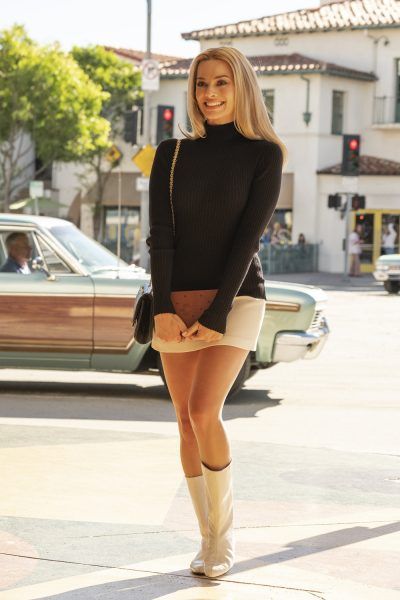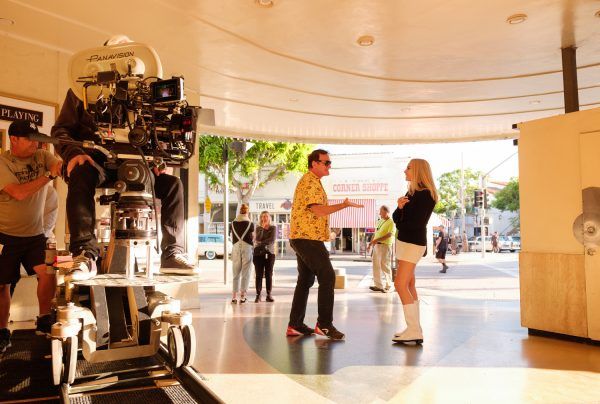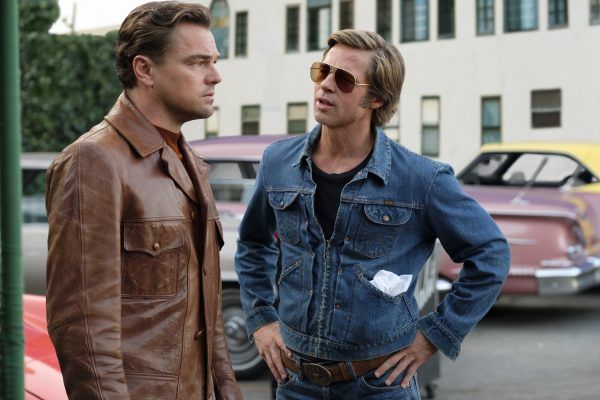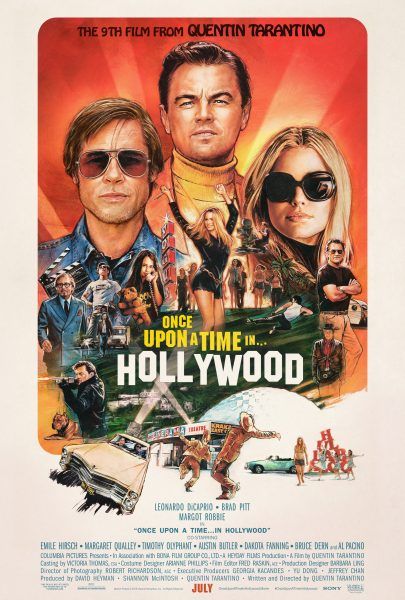Spoilers ahead for Once Upon a Time…in Hollywood.
When it was announced that Quentin Tarantino’s ninth movie would be titled Once Upon a Time…in Hollywood, I figured it was just a homage to other Once Upon a Time movies like Once Upon a Time in the West and Once Upon a Time in America. And yes, the film is set in Hollywood, but it turns out the “Once Upon a Time” part was Tarantino constructing a fairy tale of sorts as he took to rewriting history yet again. As my colleague Vinnie Mancuso wisely pointed out, the ending of the film is incredibly melancholy as it knowingly deviates from history to provide a happy ending that never happened.
This isn’t the first time Tarantino has rewritten history, but I felt far more uncomfortable about it this time than I did with Inglourious Basterds and Django Unchained. It’s one thing to dispatch evil men who don’t deserve to write history, and seemingly, that’s what’s happening again with Once Upon a Time…in Hollywood where the Manson Family killers get absolutely destroyed by Rick Dalton (Leonardo DiCaprio) and Cliff Booth (Brad Pitt). And I have no sympathy for those killers; watching them get fictionally obliterated in a gruesome fashion is fun to watch. My theater cheered and I enjoyed watching these murderers get massacred. But it feels different because it’s not just a bad guy being killed, but four people being saved.
The film rests its entire third act on the tension of knowing history and Tarantino’s plan to upend it. The narration even walks us through what Sharon Tate (Margot Robbie), Jay Sebring (Emile Hirsch), Abigail Folger (Samantha Robinson), and Voytek Frykowski (Costa Ronin) were up to the night they were murdered by the Mansons, except in Tarantino’s world, that never happens. They’re saved (without their knowledge) by the deeply flawed Rick and Cliff, a drunk and a wife-killer, respectively. It’s a happy ending where Rick and Cliff’s friendship is cemented, Rick gets an invite to a world where he was being left behind, and Sharon Tate gets to dazzle audiences for decades.
It’s a nice thought, and I agree that it’s deeply melancholy in its own way as the new history papers over the tragic reality. But perhaps it’s not Tarantino’s place to provide a fantasy here. It’s one thing to do it in Inglourious Basterds because fuck Hitler and his story, and the way Shoshanna wins is a testament to the enduring power of cinema. It also works in Django Unchained, which acknowledges that the power structure wrought by white supremacy is so evil that the only way to move forward is to burn it down. But saving Sharon Tate and her friends feels like a disservice to their memory, not a protective vision.
It should be noted that I don’t have a problem with Tarantino’s depiction of Tate in the film. Sure, she doesn’t have a lot of lines, but it’s clear that he has a lot of respect for her and lets her exist as a symbol for a Hollywood that never got to happen. It’s clear that Tarantino thinks Tate could have been a luminary of her time had her life not been cut tragically short, and the scenes of her watching The Wrecking Crew with an audience are some of the most joyful in the picture.
But therein also lies the problem. By putting Tate on a pedestal of sorts, she functions as symbol, but not really a person. And Tarantino is well within his rights to use a person as a symbol to explore a larger idea about a Hollywood in transition, the deeply flawed people who are on their way out, and the uncertainty of the future that could certainly use a rewrite. However, by using Tate, he in turn deprives her of the honesty of her story and her humanity. It’s difficult for me to square Tarantino’s respect for Tate with the way he uses her and the way he rewrites her story.
Yes, it’s a fairy tale ending, but is that really honoring Tate? Perhaps I’ll feel differently on repeat viewings, but watching the ending unfold last week, I felt both joy at watching the killers gets murdered, and an intense discomfort with Tarantino letting us know that he was going to play god with the deaths of six people. Sharon Tate, Jay Sebring, Abigail Folger, and Voytek Frykowski were murdered by members of the Manson Family as were Leno and Rosemary LaBianca. There’s no escaping that, and any attempt to do so feels like escapist fantasy at its worst. Instead of a lie that tells the truth, to quote Picasso, it’s a lie that provides comfort, and none of us should take comfort from what happened on Cielo Drive on August 9, 1969.





